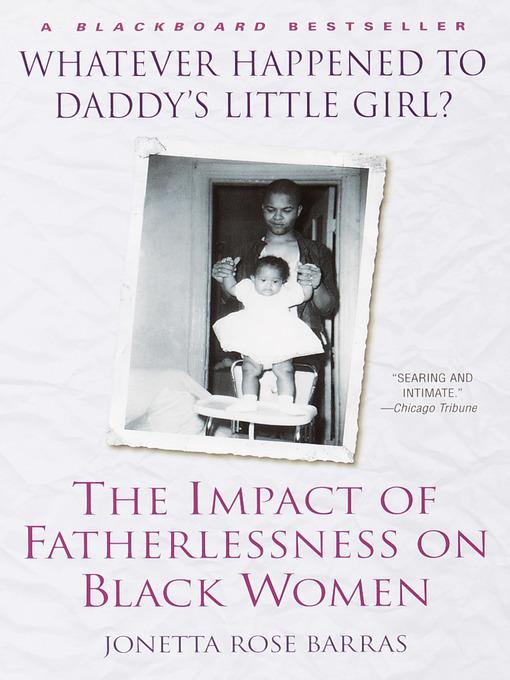
Whatever Happened to Daddy's Little Girl?
The Impact of Fatherlessness on Black Women
کتاب های مرتبط
- اطلاعات
- نقد و بررسی
- دیدگاه کاربران
نقد و بررسی

May 1, 2000
Integrating a personal narrative with other women's testimonies and research findings with self-help remedies, Barras sheds light on the profound impact fatherlessness can have on black women. In her 30s, Barras learned from her mother that the man she had thought was her father was not. Though stunned by the news, Barras also believed it explained much of the loneliness she endured as a child. She began to try to come to terms with the guilt she felt not only about her father's departure, but about her ruptured relationships with two surrogate fathers, each of whom left her mother while Barras was still a girl. She also recounts her heartrending efforts to mend broken trust with her mother while forging a bond with her own fatherless daughter. The study deepens in subsequent chapters, as Barras intertwines the diverse voices of other black women who grew up without their fathers. Unfortunately, her ambitious effort is marred by overly broad conclusions. She attributes a vast range of dysfunctional behaviors--from promiscuous sexual relationships and a longing for motherhood to the inability to trust and uncontrolled fits of "rage, anger, depression"--to fatherless women. And her reliance on simple solutions at times minimizes the issue's gravity. Her work is stronger when she locates the chasm between black men and women in gender war stereotypes of "good women" and "bad men" and affirmative action policies that have allowed black women upward mobility while moving black men out of the workforce. Her study should stir useful debate. Agent, Victoria Sanders.

February 1, 2000
Offering a personal perspective, journalist Barras (The Last of the Black Emperors) here identifies a "fatherless woman syndrome" that includes rage, addiction, and sexual acting-out.
Copyright 2000 Library Journal, LLC Used with permission.

May 15, 2000
Journalist Barras, author of the Marion Barry profile "The Last of the Black Emperors" (1998), grew up abandoned by the man she thought was her father but who, she later learned, actually was her stepfather. From that personal basis, she examines the widespread phenomenon of fatherlessness, particularly as it affects black women. Nearly half of American households are headed by single women, African American households more often than those of other demographic groups. Barras talked with other women who had lost their fathers, whether through death, divorce, or abandonment, and with psychologists. She shows that fatherless daughters respond with reactions ranging from clinginess to exaggerated independence. She describes the fatherless woman syndrome, which consists of fears of rejection, abandonment, and commitment and includes sexual dysfunctions ranging from promiscuity to aversion to intimacy. She also offers a 25-question self-examination for women who think they suffer the fatherless woman syndrome and advises on how to heal the pain of fatherlessness. ((Reviewed May 15, 2000))(Reprinted with permission of Booklist, copyright 2000, American Library Association.)

























دیدگاه کاربران